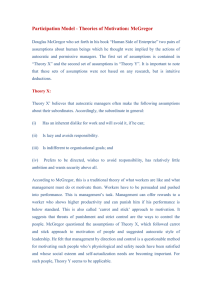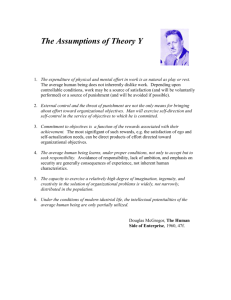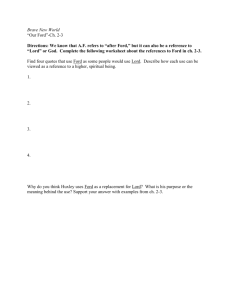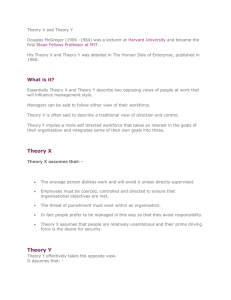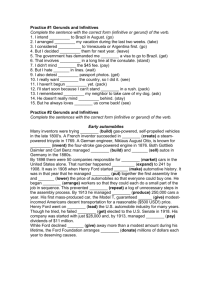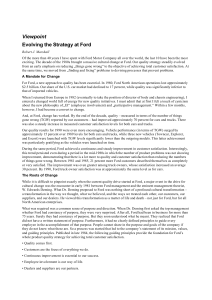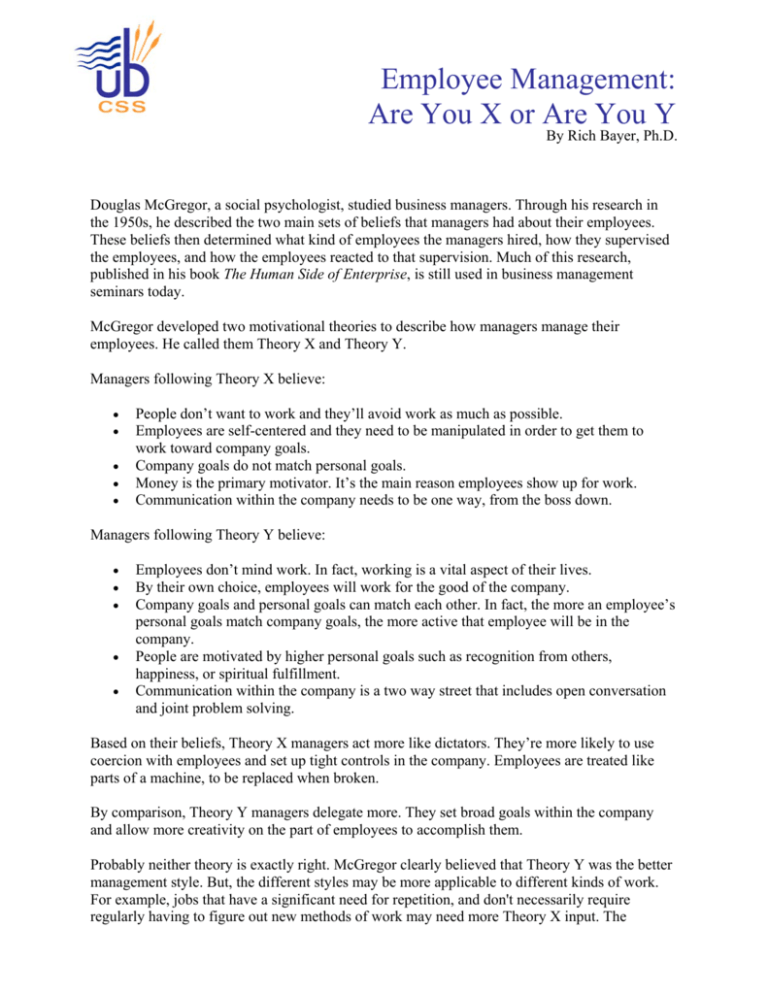
Employee Management:
Are You X or Are You Y
By Rich Bayer, Ph.D.
Douglas McGregor, a social psychologist, studied business managers. Through his research in
the 1950s, he described the two main sets of beliefs that managers had about their employees.
These beliefs then determined what kind of employees the managers hired, how they supervised
the employees, and how the employees reacted to that supervision. Much of this research,
published in his book The Human Side of Enterprise, is still used in business management
seminars today.
McGregor developed two motivational theories to describe how managers manage their
employees. He called them Theory X and Theory Y.
Managers following Theory X believe:
•
•
•
•
•
People don’t want to work and they’ll avoid work as much as possible.
Employees are self-centered and they need to be manipulated in order to get them to
work toward company goals.
Company goals do not match personal goals.
Money is the primary motivator. It’s the main reason employees show up for work.
Communication within the company needs to be one way, from the boss down.
Managers following Theory Y believe:
•
•
•
•
•
Employees don’t mind work. In fact, working is a vital aspect of their lives.
By their own choice, employees will work for the good of the company.
Company goals and personal goals can match each other. In fact, the more an employee’s
personal goals match company goals, the more active that employee will be in the
company.
People are motivated by higher personal goals such as recognition from others,
happiness, or spiritual fulfillment.
Communication within the company is a two way street that includes open conversation
and joint problem solving.
Based on their beliefs, Theory X managers act more like dictators. They’re more likely to use
coercion with employees and set up tight controls in the company. Employees are treated like
parts of a machine, to be replaced when broken.
By comparison, Theory Y managers delegate more. They set broad goals within the company
and allow more creativity on the part of employees to accomplish them.
Probably neither theory is exactly right. McGregor clearly believed that Theory Y was the better
management style. But, the different styles may be more applicable to different kinds of work.
For example, jobs that have a significant need for repetition, and don't necessarily require
regularly having to figure out new methods of work may need more Theory X input. The
stereotypical assembly line would be an example of this. For these types of jobs, there’s a need
to set quotas and have fairly strict guidelines with little margin for error.
On the other hand, jobs requiring creative, problem-solving skills such as research and
engineering or advertising work will thrive better under Theory Y managers. Employees in these
fields need more intellectual freedom, more room to make their own decisions.
But from the standpoint of psychological health, all jobs benefit from a Theory Y approach at
least to some extent.
Theory Y managers boost job satisfaction by treating employees with dignity and respect. A
Theory Y manager can even boost job satisfaction among employees whose jobs are routine and
do not present a high degree of mental challenge. With such employees, a manager can improve
satisfaction by giving them additional responsibilities that make the work more challenging or by
helping them understand how their personal goals actually match company goals.
For 17 years until the late 1990s, Ford Motor Company used the marketing slogan, “Quality is
job one.” This slogan improved sales and helped the company maintain its competitive position
against the foreign imports.
But it had another effect as well. It gave Ford employees a company goal that could match their
personal goals. And it worked. After Ford adopted the slogan, the quality of Ford cars and trucks
actually did improve and kept improving for many years.
So if you want to enhance your management skills, try leaning a little more toward Theory Y
techniques. See if this makes a difference in employee performance.
-----------------------------------Rich Bayer, Ph.D., is the CEO of Upper Bay Counseling and Support Services, Inc. and a
practicing psychologist.
For more information contact Upper Bay Counseling and Support Services, Inc., 200 Booth
Street, Elkton, MD 21921, 410-996-3400. All rights reserved.
Copyright 2004

